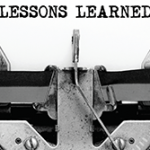On Being Medical Editor
Some of you have asked me what it is like to be the medical editor of The Rheumatologist. My standard answer is, at least now, I know what Sisyphus felt like.
For those of you who slept through your high school lecture on Greek mythology, Sisyphus was the King of Corinth, who managed to cheat death one too many times. As punishment, Zeus, the king of the gods, decreed that Sisyphus would spend existence rolling an enormous boulder up a hill. Just as he reached the top, the boulder would roll back to the bottom of the hill, and Sisyphus would start again, doomed to never complete his task.1
That is, at a first approximation, what it is like to be the medical editor of The Rheumatologist.
There is a constant stream of work, which has its own ebb and flow. But once a month, the work crests, and there is a flood of articles to be reviewed in a very short period of time. And, of course, I then have to write my column.
I have a monthly appointment on my calendar that says simply, Write Column. And although I know Newtonian physics would not allow this, I swear the amount of time that passes between those appointments has begun to decrease.
One of the hardest things about writing a monthly column, honestly, is learning to let go. For days or weeks after a column has been finalized, I find myself subconsciously collecting snippets of information that would have been perfect for making my case.
For example, in the week after we had published my column on the Sackler family and their efforts to disconnect their public philanthropy from their private complicity with the opiate crisis in the U.S., the Metropolitan Museum of Art and the Guggenheim both announced they would no longer accept donations from the Sacklers.2,3 Since then, Purdue Pharma has started negotiations for a global settlement, which would include a $3 billion payout from the Sackler family.4 That seems like a lot of money—until you realize the Sackler family will still be worth $10 billion, money that largely came from the sale of Oxycontin.5 But it’s not nothing.
In July, I wrote about the #manel phenomenon and the unconscious bias that causes men to dominate at conferences. Two weeks later, the Lancet Group announced it would use its influence to actively oppose all-male panels at all levels:
Our new No All-Male Panel Policy acknowledges the traditional predominance of male speakers, which excludes the full breadth of available expertise and opinion. The policy states that Lancet Group editors will not serve as panelists at a public conference or event when there are no women on the panel (“manels”), and it commits us to gender balance in events we sponsor or organize. … As editors and journals we are just one part of an ecosystem that includes academic institutions and research funders where unacceptable gender bias is well documented, and of a broader society that disadvantages certain groups to create an uneven and unfair playing field. But we are committed to be the change we want to see, and to play our part in helping to ensure diversity and inclusion in health research and publishing.6
Several times this year, I have found myself writing about healthcare economics. I am sure this is because I have been fascinated by nascent presidential politics, which always seem to feature a discussion of healthcare and how to pay for it.
As I have researched these issues, I have become flummoxed by how inane the American system of healthcare truly is. It actually reminds me, more than anything, of my old, beloved Ford Taurus, which I kept going for years longer than was wise by patching parts as they fell apart. We can presumably keep the healthcare system going with duct tape and spit, but I think we will inevitably have to junk it and start over again.
As anecdotal proof, I want to draw your attention to a news item you may have missed: On Aug. 7, 2019, Brian S. Jones, a 77-year-old man from Ferndale, Wash., called 9-1-1 to let someone know that he was going to kill his wife and then himself because he could no longer afford to pay for their medical care. Over the 9-1-1 operator’s pleading to stay on the phone, he calmly informed her that he had left a list of instructions, and the police would find their bodies in the front room.7
He then hung up, shot his wife in the head and shot himself three times. The phone call was an act of courtesy; he did not want their deaths to be too much of an inconvenience for others. He acted with the calmness of a man beyond desperation, who had nothing left to lose. Mr. Jones reminds us that we are wrong to think of the healthcare debate as a discussion of dollars and cents. We are, quite literally, debating the value we place on a human life. Attention must be paid.8



